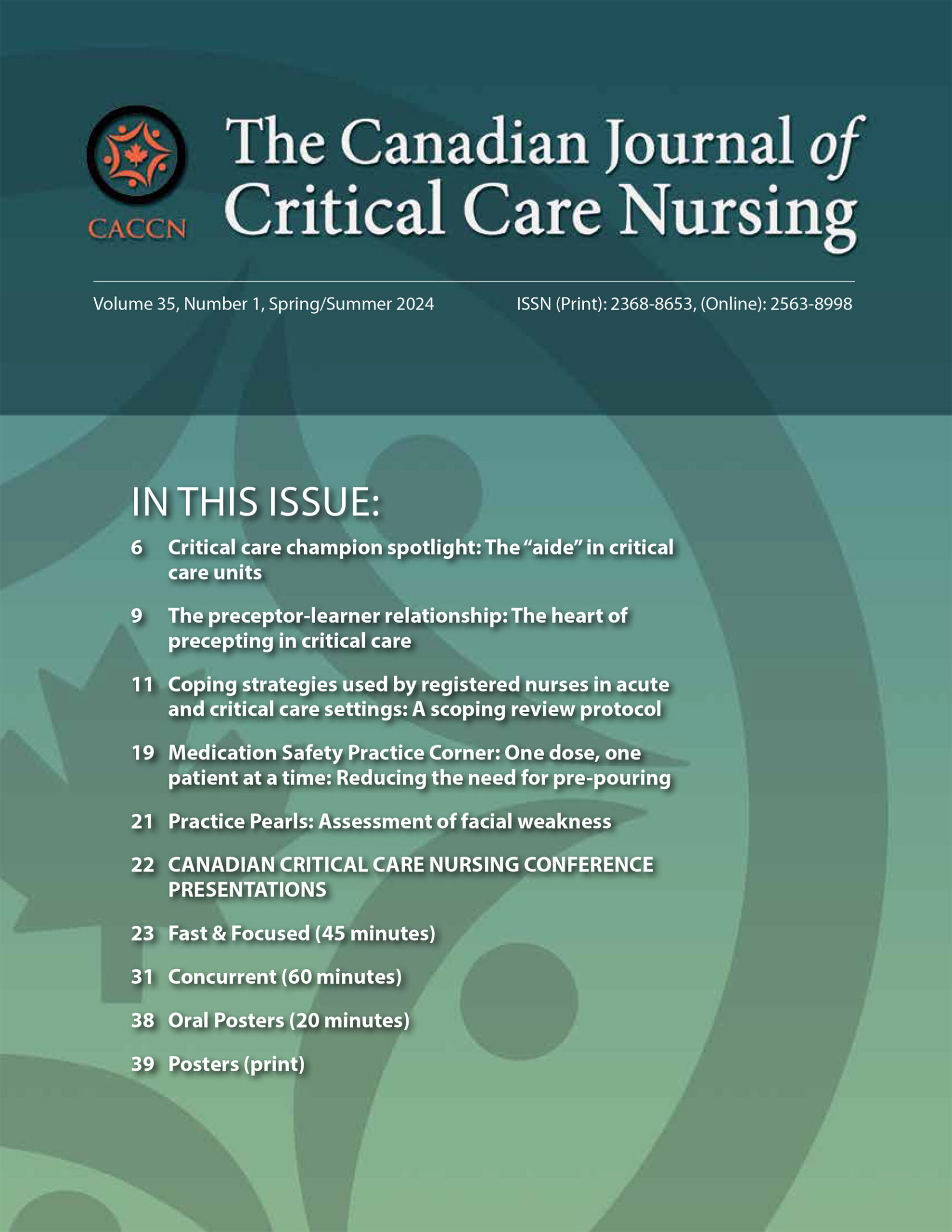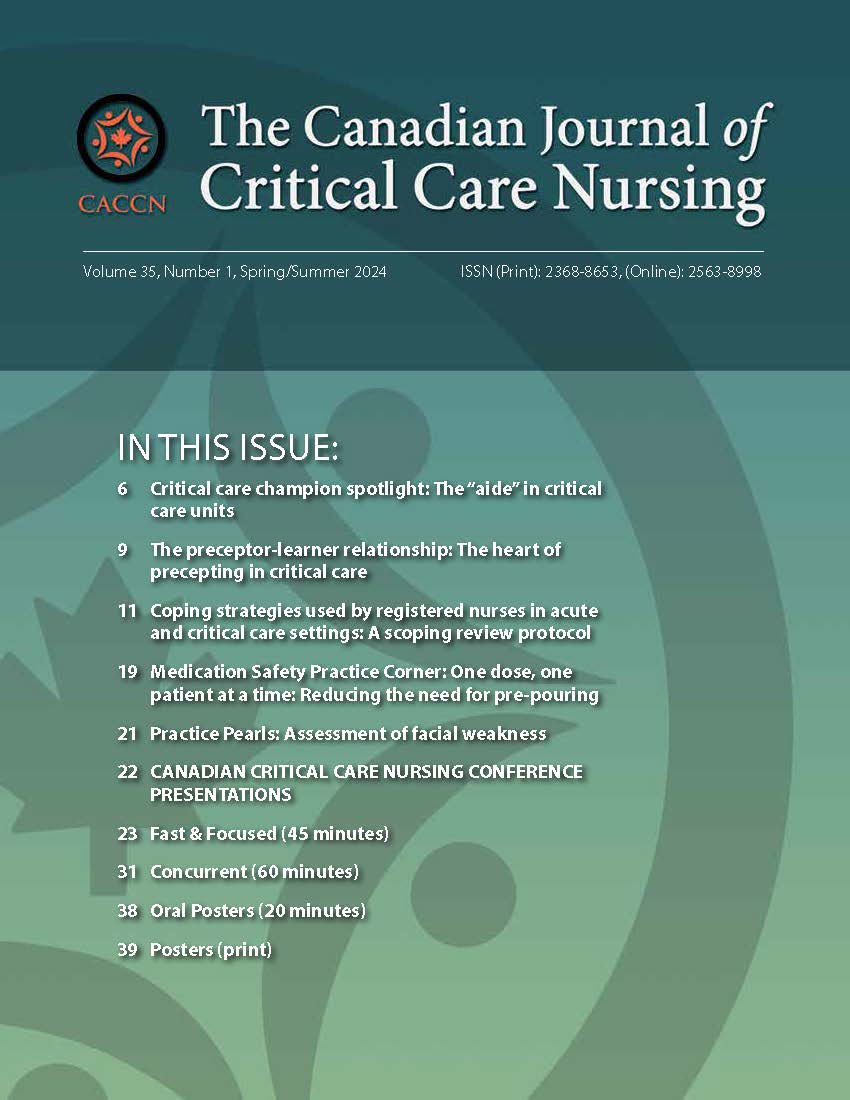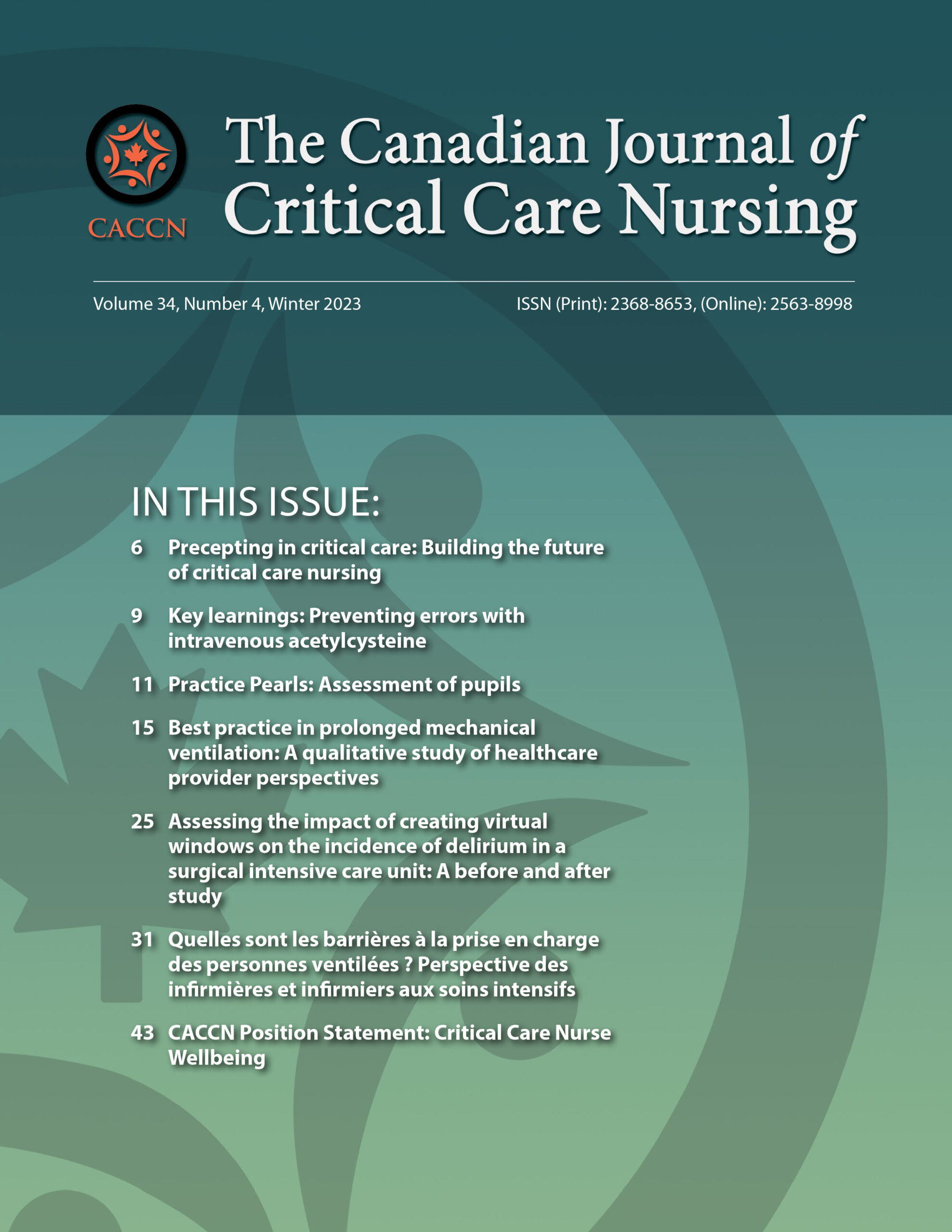A rapid realist review of practices for assigning remote telemetry responsibilities to new critical care nurses
Brandi Vanderspank-Wright, PhD, RN, CNCC(C), Michelle Lalonde, PhD, RN, Amanda Ross-White, BA, MLIS, Sarah Crowe, MN, PMD-NP(F), NP, CNCC(C), Carley Alexander, BScN, RN, Rosalin Awad-Maglieri, BScN, RN, and Natalie Bourgeois, BScN, RN.
Abstract
Background: Registered nurses in critical care units may have a variety of responsibilities in addition to direct patient care. Assuming roles over and above their patient assignment can be challenging for nurses new to critical care. Even though additional roles may include similar skill sets (e.g., electrocardiography), the demands of learning multiple new roles and responsibilities occur during a larger transition into specialty practice.
Aim: To identify and summarize literature that helps provide guidance and best-practice(s) regarding assigning telemetry to new critical care nurses.
Read More
Antecedents of burnout and turnover intentions during the COVID-19 pandemic in critical care nurses: A mediation study
Ann Rhéaume, PhD and Myriam Breau, PhD (c), MScN, RN
Abstract
Background: Nurses working in critical care environments have experienced a great deal of psychological stress during the successive waves of the COVID-19 pandemic. Identifying factors which contribute to burnout and turnover intentions are important to retain intensive care unit (ICU) nurses.
Purpose: The purpose of this study is to identify factors that are directly and indirectly associated with burnout and turnover intentions in ICU nurses.
Methods: A cross-sectional design was used with survey data during the peak of the second wave of the COVID-19 pandemic.
Read More
Identifying Serotonin Syndrome in the ICU: Case Report
Caralyn Bencsik, MN, ACNP
Abstract
An 18-year-old female who presented with altered level of consciousness, myoclonus, and hemodynamic instability was admitted to the intensive care unit with suspected serotonin syndrome. Serotonin syndrome is an under-recognized disorder that can cause altered levels of consciousness, neuromuscular and autonomic dysfunction, and even death. Increasing critical care nurses’ and multidisciplinary team members’ awareness of serotonin syndrome will lead to more timely identification, avoidance of the use of synergistic medications, intervention, and outcomes for critically ill patients.
Read More






